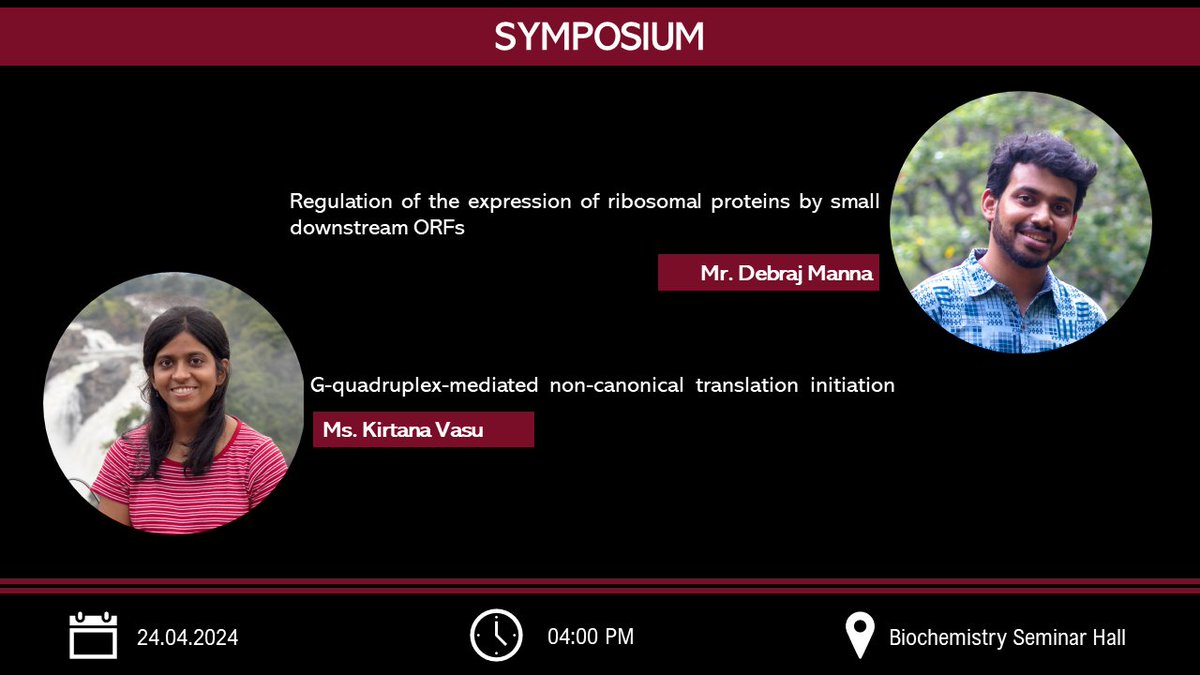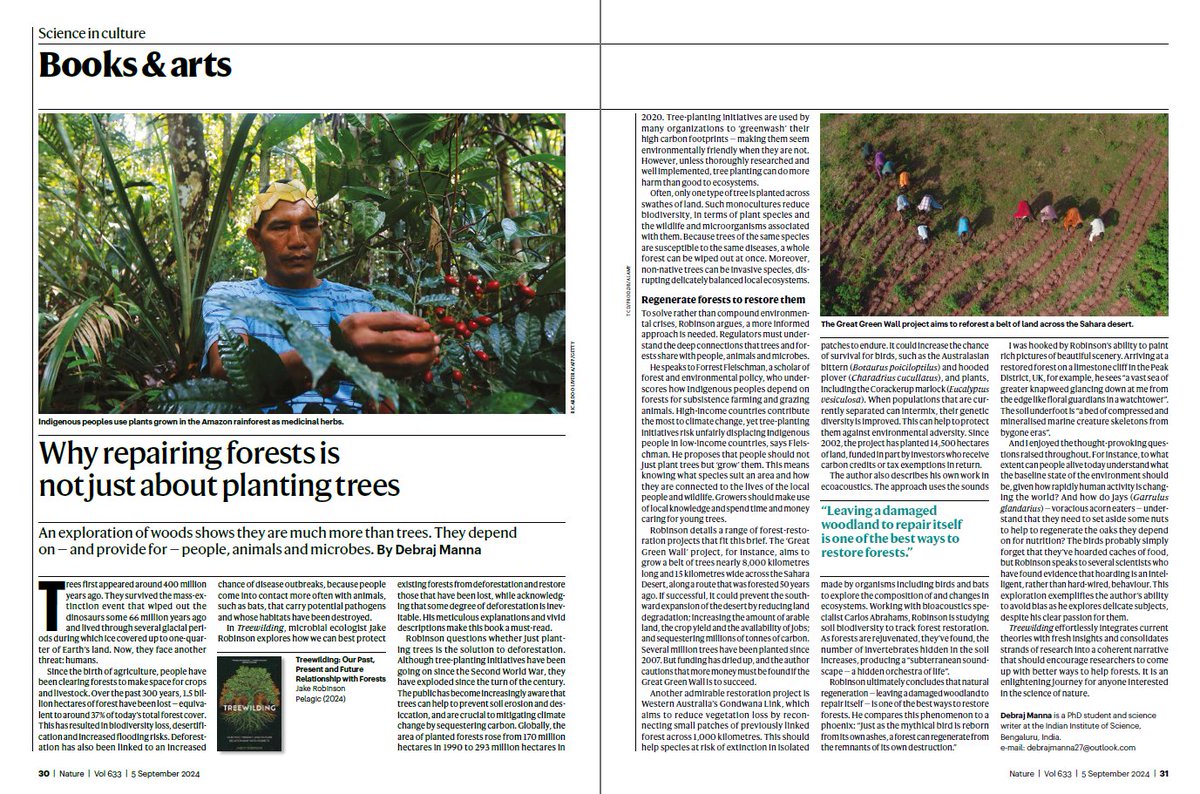
Lekha E M
@emlekha
Research associate @ Indian Institute of Science, Bangalore.
ID: 41396947
20-05-2009 16:52:09
20 Tweet
86 Followers
259 Following

To learn more about our favourite micro-animal, the tardigrades, & how they became our source of passion, tune in to this Joyful Microbe episode where Justine Dees, PhD spoke with Prof. Sandeep Eswarappa The Biochemical Society IISc Bangalore #sciencetwitter #tardigrade joyfulmicrobe.com/tardigrades-sa…

#NewPaperAlert Initially believed to be cells merely filled with pre-made proteins, human erythrocytes are actually capable of making their own proteins during their lifetime. Learn more in our latest @MBoCjournal bit.ly/RBCMBoC Sangeetha Devi Kumar The Biochemical Society IISc Bangalore


Did you know researchers from IISc Bangalore contributed significantly to developing India's Light Combat Aircraft, HAL Tejas? Read the story I penned for this issue of Connect Magazine to know more connect.iisc.ac.in/2023/06/giving… #scicomm Duvvuri Subrahmanyam | ದುವ್ವೂರಿ ಸುಬ್ರಹ್ಮಣ್ಯಂ Srinivas Bhogle


#NewPaperAlert Read our latest Journal of Biological Chemistry paper to find out how the stop codon readthrough of Neuronatin (NNAT) mRNA regulates neuronal differentiation in a calcium-mediated manner jbc.org/article/S0021-… Madhuparna Pandit Noor Akhtar Sarthak Sahoo Lekha E M The Biochemical Society IISc Bangalore
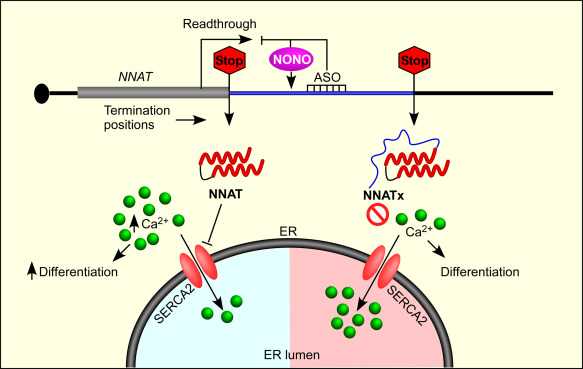

#NewPaperAlert Read our latest Journal of Molecular Biology paper to find out how the kinetics of translating ribosomes determine the efficiency of programmed stop codon readthrough bit.ly/DKSME Debaleena Kar Debraj Manna Lekha E M Anumeha Singh Saubhik Som IISc Bangalore The Biochemical Society
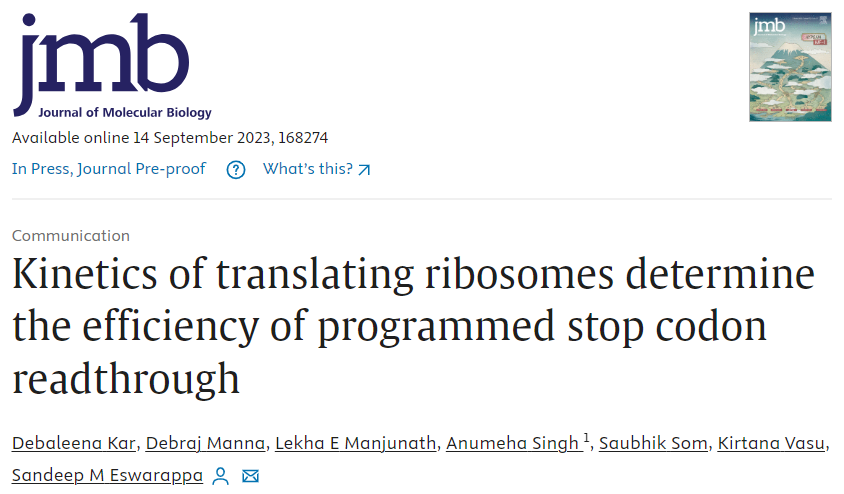


#NewPaperAlert Thrilled to present our latest EMBO Reports paper demonstrating a strategy to induce stop codon readthrough in a transcript-selective manner using CRISPR-dCas13 bit.ly/LEMSME Lekha E M Anumeha Singh Sangeetha Devi Kumar Debaleena Kar IISc Bangalore The Biochemical Society
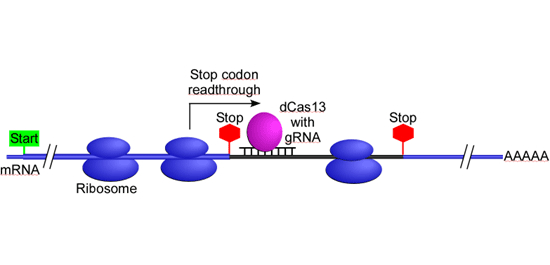



#NewPaperAlert Excited to present our latest J Cell Science paper demonstrating Hominini-specific regulation of cell cycle by stop codon readthrough of FEM1B bit.ly/MdNA Noor Akhtar Anumeha Singh Lekha E M Dhruba Dey Sangeetha Devi Kumar Arpan Das 😷 Sandeep M Eswarappa


About 7 million years ago, a single nucleotide (T) was inserted in the 3'UTR of the FEM1B gene of humans and chimps. That might have changed the speed of our cell cycle. See our latest paper in the Journal of Cell Science: bit.ly/MdNA Eswarappa Lab IISc J Cell Science
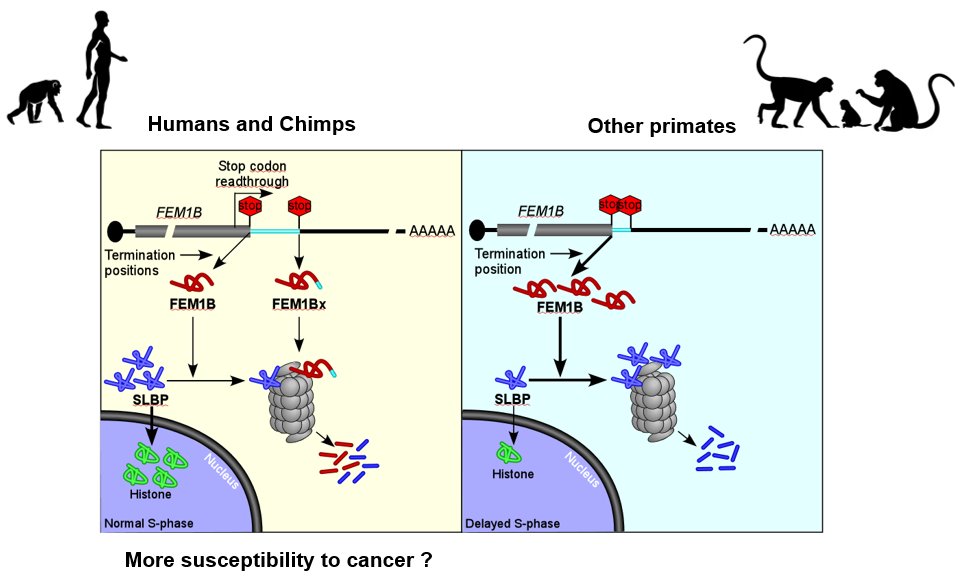


We enjoyed writing our latest review Journal of Biological Chemistry on Emerging concepts in the molecular cell biology and functions of mammalian erythrocytes doi.org/10.1016/j.jbc.… Hope you have fun reading it too! Sangeetha Devi Kumar Japita Swati Ghosh Sandeep M Eswarappa IISc Bangalore


